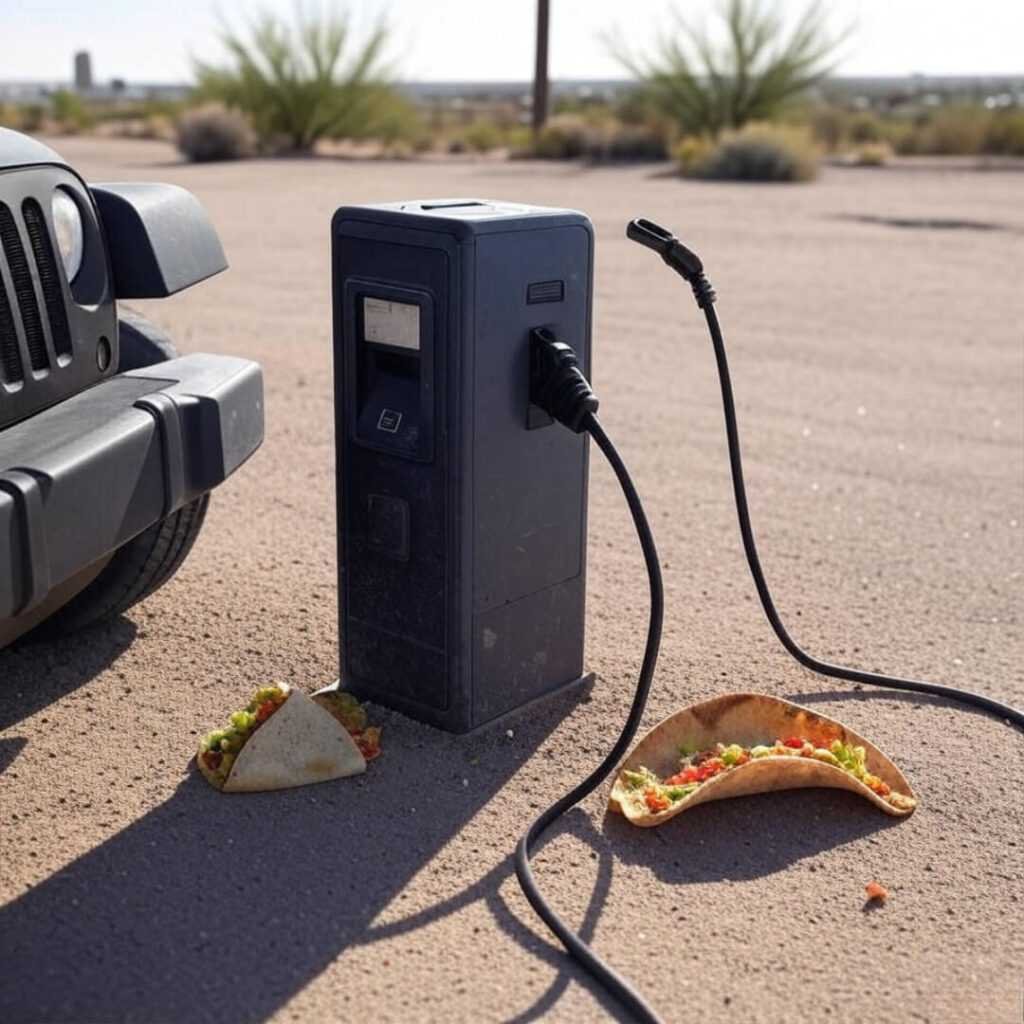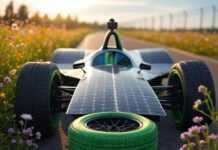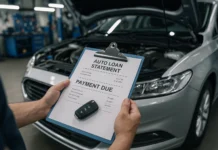Hydrogen vs. electric cars is legitimately driving me up the wall, y’all. I’m writing this from a wobbly table at a diner in Tucson, Arizona, where the AC’s rattling like it’s about to quit and there’s a ketchup stain on my napkin I’m trying to ignore. My phone’s at 12%, and I’m surrounded by truckers arguing about politics, but I’m deep in my head about the future of cars. I’m no car expert—hell, I barely keep my old Jeep running—but I’ve been spiraling on X about green driving, and I’ve got thoughts. Here’s my take, probably full of holes, because I’m just a human messing this up as I go.
How I Got Hooked on Hydrogen vs. Electric Cars
So, I stumbled into this whole hydrogen vs. electric cars thing a couple months back when I was stuck at a gas station outside Phoenix. Picture me, sweating buckets, pumping gas into my Jeep, and scrolling X on my cracked phone screen. I saw some posts about hydrogen fuel cars, and I was like, “Wait, cars that run on water stuff? That’s straight-up sci-fi!” I probably looked like a total dweeb, just standing there, gas nozzle in hand, daydreaming about green driving.
Hydrogen cars—or, uh, fuel cell electric vehicles (FCEVs, because apparently we love acronyms)—use hydrogen gas to make electricity and power the wheels. Electric vehicles, you know, like Teslas or whatever, just plug into a charger and soak up battery juice. Both are supposed to be clean energy cars, but they’re like siblings fighting over who’s cooler. I’m kind of obsessed but also confused, because I’m the guy who once locked his keys in his car at a Taco Bell.
Hydrogen Cars: Why I’m Kind of in Love
Hydrogen fuel cars are, like, nuts. You roll up to a pump, fill up with hydrogen in like five minutes, and you’re good to go. No sitting around like with EVs. I saw a Toyota Mirai at a car show in Tempe a while back, and I was geeking out so hard I tripped over my own shoelaces trying to get a closer look. Spilled my soda all over my shirt—classic me. Anyway, these cars just puff out water vapor. Water! That’s so dope.
But, okay, here’s the deal: hydrogen’s got problems. There’s like no fueling stations around here. I looked it up—the closest one’s in California, and I’m not driving my Jeep that far just to test a theory. Plus, making hydrogen can be kind of sketchy unless it’s with renewable energy, which isn’t the norm. I read on Energy.gov that only a tiny fraction of hydrogen is “green” right now. Bummer, man.

Electric Cars: Super Hype, Super Annoying
EVs are everywhere, though. My coworker Mike’s got a Tesla Model 3, and he’s always flexing about how he’s saving gas money. I rode in it once, and dude, that thing flies. But then we got stuck at a charger for like an hour, and I was just sitting there, eating a stale granola bar from my glove box and wishing I was anywhere else. Charging takes forever unless you’ve got one of those fancy superchargers, and even then, it’s not instant.
And don’t get me started on batteries. They’re heavy and pricey, and mining the stuff for them—like lithium and stuff—isn’t exactly eco-friendly. I saw this article on NPR about how battery recycling is getting better, but it’s still a mess. Also, range anxiety? Real. I’m the kind of guy who forgets to charge his AirPods, so imagine my car dying in the desert? Nope, hard pass.

My Hot Mess of a Comparison
Alright, let me try to sort out this hydrogen vs. electric cars thing, because my brain’s a mess. Here’s how I see it, probably screwing it up:
- Refueling vs. Charging: Hydrogen is quick—five minutes and you’re done. EVs? You’re stuck for 30 minutes or more, unless you’re at a supercharger. But good luck finding a hydrogen station—they’re rarer than a good parking spot.
- Eco Stuff: EVs are cleaner if your grid’s green, but Arizona’s still burning a lot of fossil fuels. Hydrogen’s only green if it’s made with renewables, which is, like, not happening much. Both beat my Jeep, though.
- Cost: EVs are cheaper to buy—a Tesla’s like $40k, but a Mirai’s closer to $50k. Hydrogen’s also pricier to fuel, from what I hear.
- Vibes: EVs are the cool kid with all the friends. Hydrogen cars are like that weird dude at the party who’s super interesting but nobody gets.
What’s the Future of Cars? I Got No Clue
I’m no psychic, but the future of cars feels like a toss-up. EVs are winning because they’re everywhere—chargers, slick designs, all that hype. Hydrogen’s more like the underdog I want to cheer for, especially for big rigs or buses where batteries are too chunky. I read on Bloomberg that hydrogen might be big for trucks, which makes sense. Nobody has time to charge a semi for hours.
But real talk? I’m torn. I love hydrogen’s vibe, but EVs are just easier. Last weekend, I was at this diner, and there was an EV charger out back. I asked the guy plugging in his Nissan Leaf what he thought, and he was like, “It’s cool, but I hate waiting.” Same, dude. Meanwhile, I’m fantasizing about a hydrogen station next to my go-to taco truck. A guy can dream, right?

My Dumb Mistakes and What I Figured Out
So, I tried to go all eco-warrior last year and looked into getting an EV. Total disaster. I forgot my apartment’s parking lot has zero chargers, so I’d be that loser circling for public stations. Also, I got way too hyped about hydrogen cars after watching some YouTube videos. I called a dealership about a Mirai, and the guy was like, “Bro, you know there’s no stations here, right?” I mumbled something dumb and hung up, then stress-ate a burrito. Embarrassing.
What did I figure out? Do your research, man. Check if your town’s got chargers or hydrogen stations before you get all excited. Also, don’t fall for the shiny hype—both hydrogen and electric cars are cool but messy, and acting like they’re perfect is just asking for a letdown.
Wrapping Up This Train Wreck
Look, hydrogen vs. electric cars is a total mess, and I’m as lost as you probably are. EVs are running the show right now—more chargers, cooler cars, and less hassle. But hydrogen’s got this scrappy, nerdy charm, like it’s the future of cars we’re not ready for. I’m just a dude in Tucson, spilling ketchup and overthinking green driving. If you’re as confused as me, hit me up in the comments or on X. Are you team hydrogen or team electric? Let’s argue—nicely, though, ‘cause I’m fragile.









































